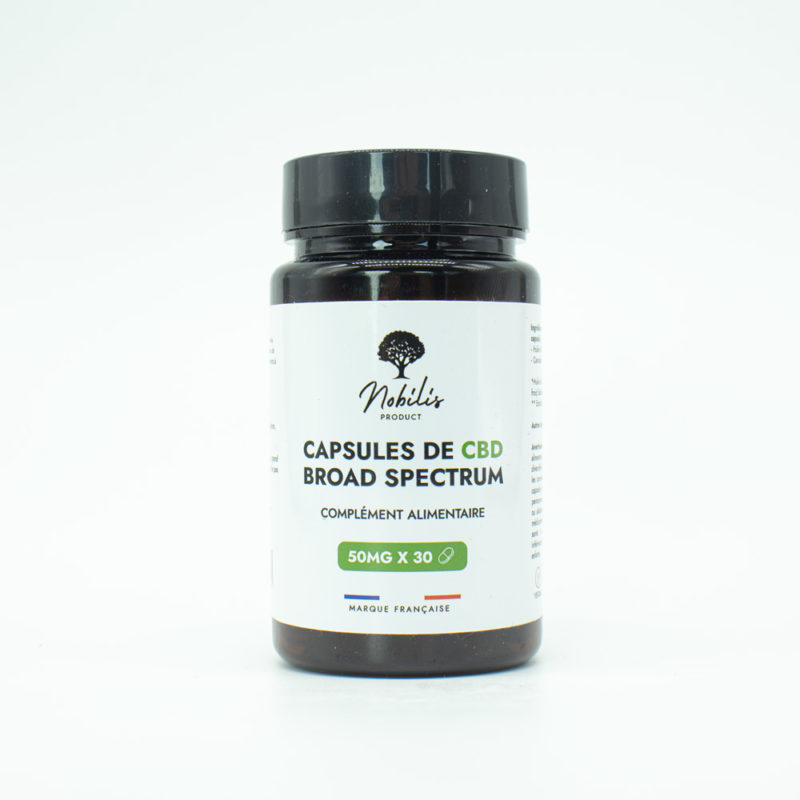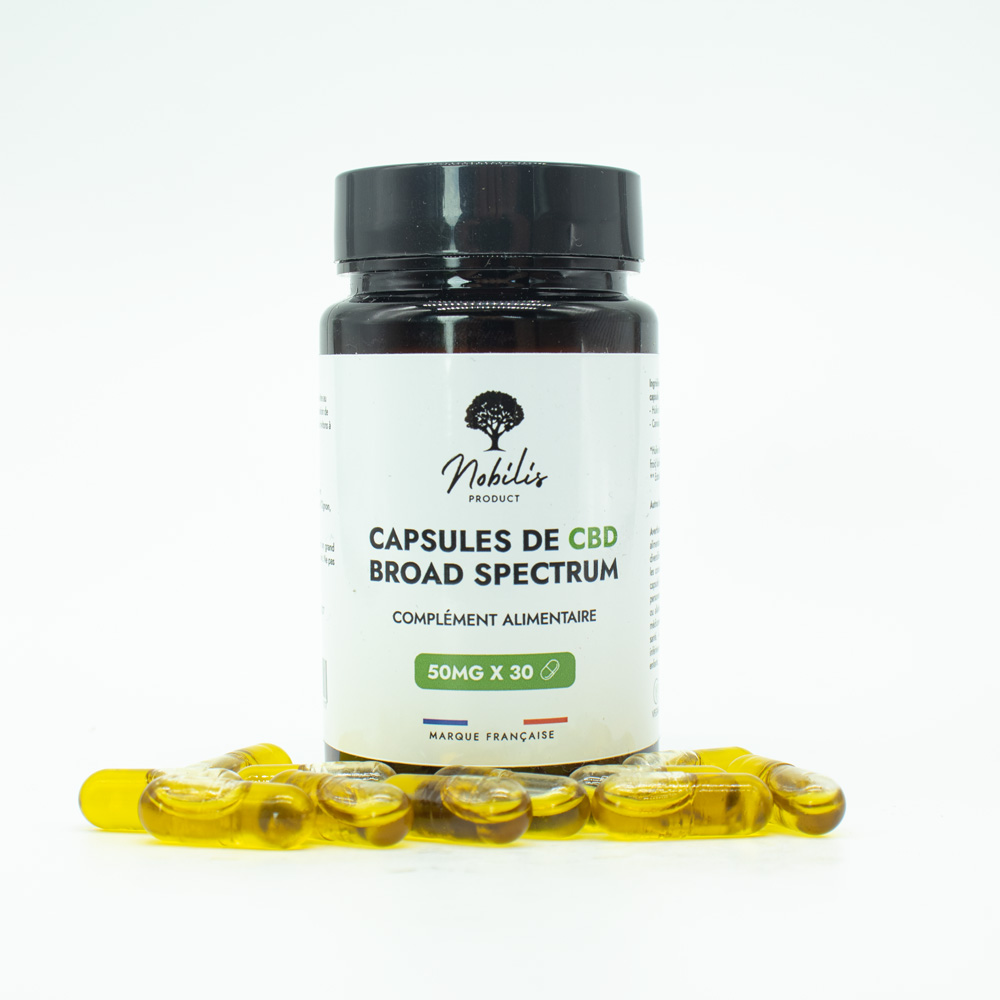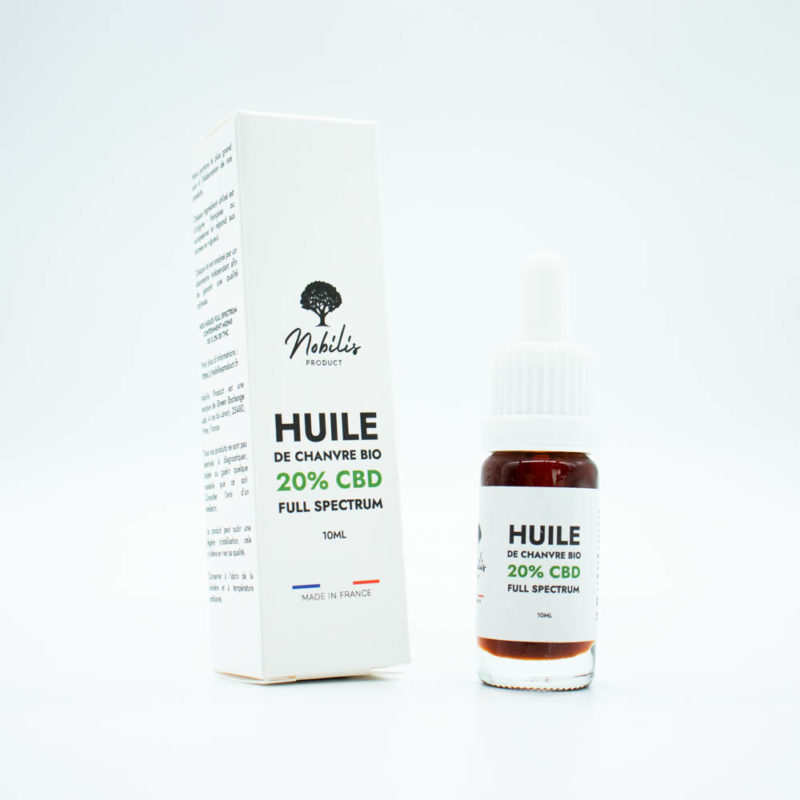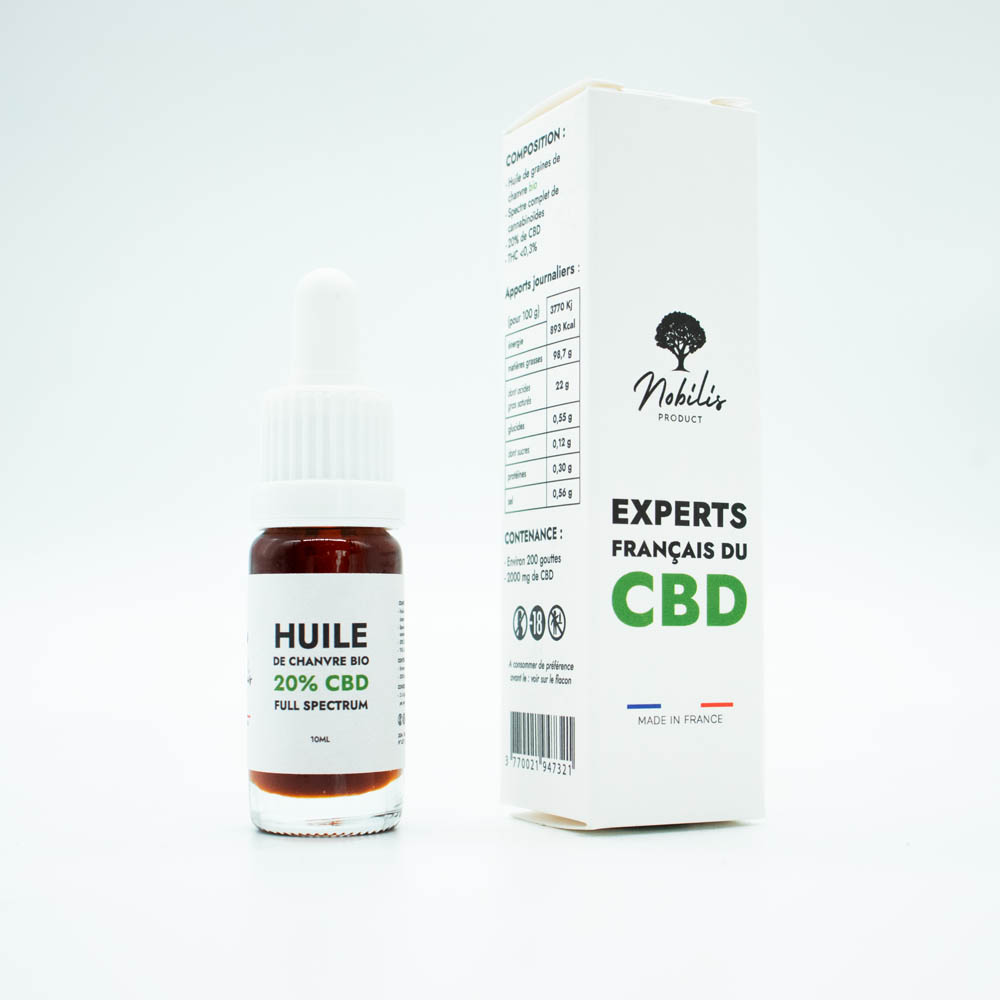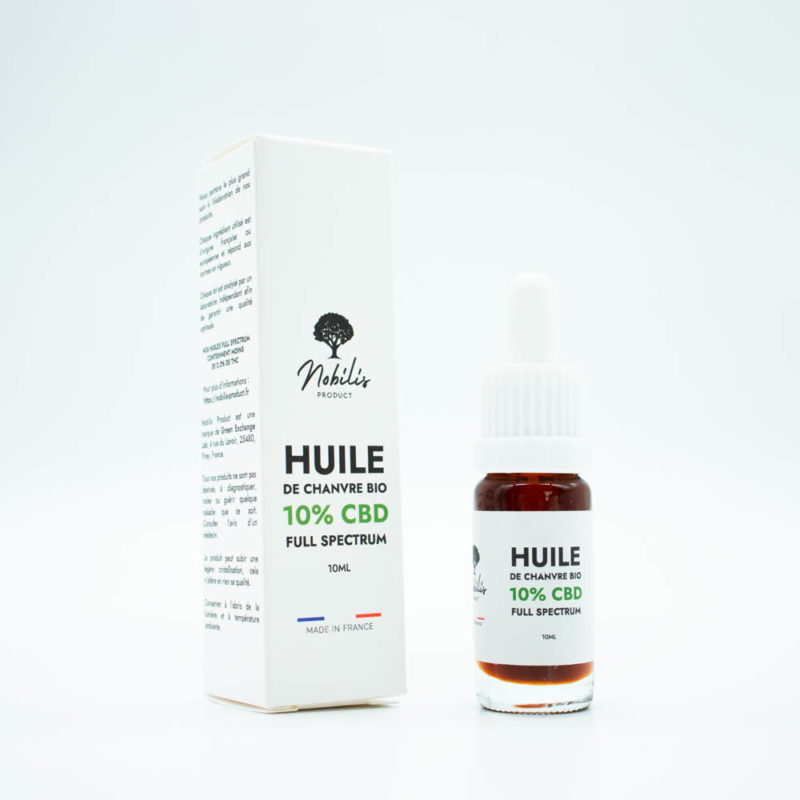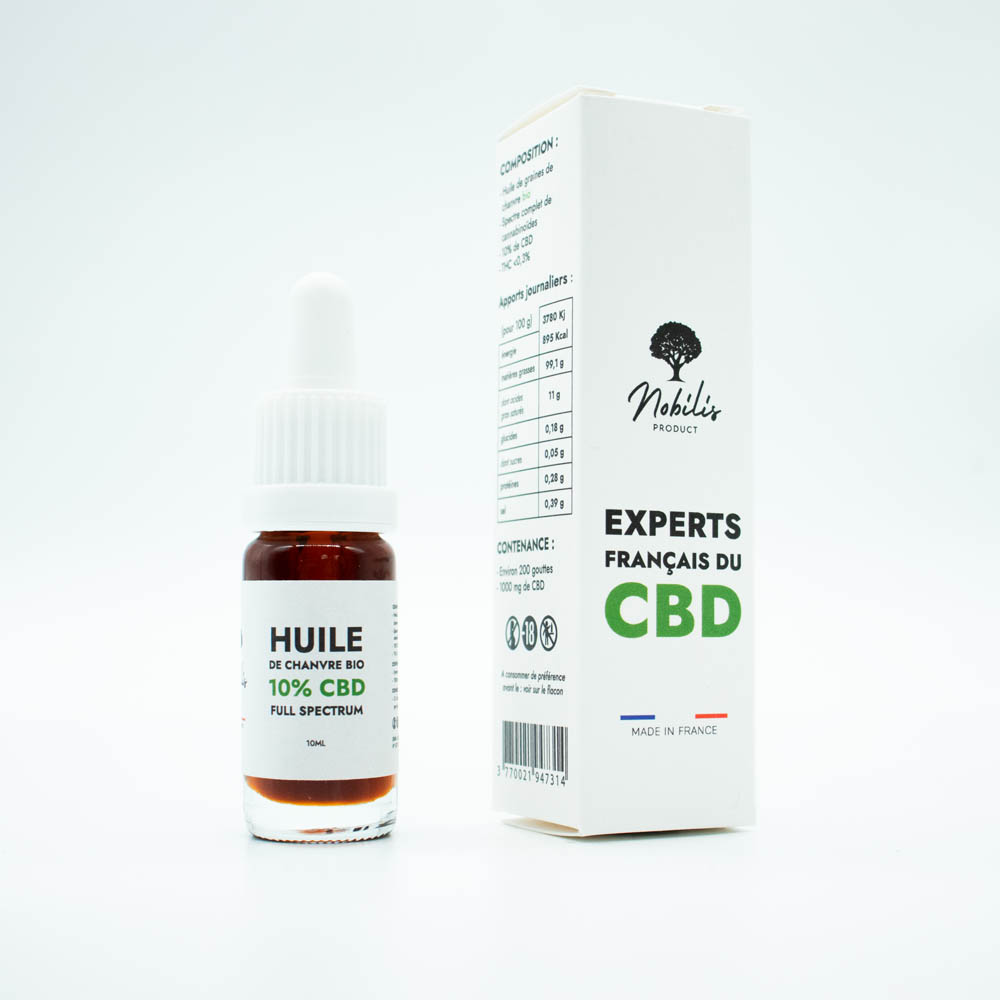Epilepsy is one of the most common neurological disorders in the world: according to the World Health Organization (WHO), it affects around 50 million people. This makes it the second most common chronic neurological disease after migraines.
Epilepsy is characterized by the occurrence of recurring seizures due to abnormal electrical activity in the brain. These seizures can take many different forms, from simple absences lasting a few seconds to spectacular convulsions. Beyond its visible manifestations, the disease has a considerable impact on quality of life permanent anxiety, cognitive impairment and social isolation.
Current drug treatments - known as antiepileptics - control seizures in around 70% of cases. However, for some patients, seizures persist despite several therapies.drug-resistant epilepsy. It is in this context that research is exploring new avenues, including cannabidiol (CBD).
CBD is a molecule derived from hemp (Cannabis sativa). Unlike THCit has no psychotropic effect. Over the past decade, CBD has attracted growing scientific interest, notably for its potential effects in certain severe and resistant epilepsies.
In 2018, the first pure CBD medication, EpidyolexEpidyolexwas approved in the United States and then in Europe for rare forms of epilepsy (Dravet and Lennox-Gastaut syndromes). This medical recognition has heightened the general public's interest in CBD, both as a therapeutic avenue and as a wellness supplement.
The purpose of this page is to provide a clear and educational overview of what the scientific studies actually say. scientific studies about CBD and epilepsy, distinguishing between regulated medical use and the use of wellness products (such as CBD oils).
Warning This article does not endorse self-medication. If you suffer from epilepsy, ask your doctor for advice.
Table of contents
What is epilepsy?
Epilepsy is a disease manifested by the chronic occurrence of epileptic seizuresThese are characterized by loss of consciousness (or not), associated with convulsions (or not) and sometimes loss of muscle tone.
In short, the type of epileptic seizures varies from one individual to anotheras do their severity, frequency and underlying causes. There are, in fact, many different forms of epilepsy.
- Most forms of epilepsy are completely benign. benignMost forms of epilepsy are completely benign, requiring no treatment as the seizures disappear on their own;
- Others are a little more serious, and although the brain is not damaged, quality of life is severely affected if appropriate treatment is not followed;
- Finally, certain syndromes, particularly those affecting childrencan cause serious cerebral lesions affecting the child's intellectual, psychological and social development.
However, whatever the epileptic syndrome in question, the physiological cause is the same: the cortex of the brain is subjected to electrical discharges electrical discharges that completely disorganize nerve impulses.
In concrete terms, during an epileptic seizure, the person's brain is momentarily in a chaotic state. in a chaotic stateThis triggers a variety of symptoms, depending on the area affected and the intensity of the discharges.
Causes of epilepsy
Epilepsy has no single cause; it can result from many factors:
- Genetic abnormalities Some forms of epilepsy appear in childhood, linked to specific mutations.
- Brain damage Seizures can occur as a result of head trauma, stroke, tumors or infections.
- Neurodevelopmental disorders abnormalities in brain formation.
- Idiopathic causes In almost 50% of cases, no precise cause is identified.
These different profiles explain why epilepsy treatment is complex, and why research is exploring new avenues such as cannabidiol.
Types of epileptic seizures
There are two main types of crisis:
- Generalized seizures Involving both cerebral hemispheres. Example: tonic-clonic ("grand mal") seizures with convulsions, falls, loss of consciousness.
- Focal (or partial) seizures Focal seizures: these begin in a specific region of the brain. They can cause absences, speech disorders or automatic gestures.
For those affected, daily life is marked by the unpredictability of seizures, which fuels the search for alternatives such as CBD in epilepsy.
Consequences of epilepsy on quality of life
Beyond the seizures, epilepsy has many impacts:
- Chronic fatigue related to crises and treatments.
- Cognitive disorders memory, concentration, learning.
- Anxiety and depression Nearly 1 in 3 patients suffer from psychiatric comorbidities.
- Social stigmatization Social stigmatization: still frequent, it accentuates isolation.
It's also to improve this overall well-being that some people are interested in the potential effects of CBD on epilepsyparticularly in relation to relaxation, stress management and sleep.
Current epilepsy treatments
Treatment is mainly based on anti-epileptic drugs. Their role is to stabilize the brain's electrical activity and limit the frequency of seizures.
- In about 70% of casestreatment provides satisfactory control.
- At 30% of casespatients remain in therapeutic failure, despite several combinations of molecules. This is known asdrug-resistant epilepsy.
For these patients, alternative solutions are limited: surgery, vagus nerve stimulation, ketogenic diet. None of these approaches is universal or always effective.
It is in this context that CBD and epilepsy a priority subject for study. Research has already shown that cannabidiol can reduce the frequency of seizures in certain treatment-resistant patients. The most striking example is the drug Epidyolexa pure CBD-based solution approved in Europe and the United States.
When is Epidiolex (CBD-based medication) effective?
Using CBD to treat epilepsy starts with little one Charlotte Figi. Suffering from Dravet syndrome, taking cannabis oil (containing 10% CBD and less than 0.2% THC) helped her go from 300 seizures/day to just 2 seizures/month. It was following the media coverage of her story that the medicinal properties of cannabis were recognized in the United States.
With government approval on its side, the scientific community has been able to take a closer look at the effects of CBD on people with epilepsy. They were able to demonstrate its effectiveness in the case of 3 specific forms of the disease [2] :
- Lennox-Gastaut syndrome Children treated with the CBD contained in Epidiolex have 42% fewer atonic seizures;
- Dravet syndrome In 40% of children, Epidiolex reduces the frequency of attacks by half;
- Finally, when epilepsy is refractory refractory and idiopathic (with no apparent cause and no response to treatment), half of all people (adults and children) have 50% fewer seizures.
Unfortunately, other forms of epilepsy have not been have not been the subject of targeted studiesIt is therefore impossible to predict the effects of Epidiolex on these patients.
CBD and its interaction with the endocannabinoid system
If the link between CBD and epilepsy interest, it's largely thanks to the endocannabinoid endocannabinoid system (ECS)a biological network present throughout the body. Discovered in the 1990s, this system plays a key role in the regulation of numerous functions: mood, pain, sleep, memory and neuronal activity.
The endocannabinoid system explained simply
The SEC(EndoCannabinoid System) is composed of :
- from cannabinoid receptors receptors (CB1 and CB2),
- from endogenous ligands (called endocannabinoids, like anandamide),
- andenzymes that ensure their synthesis and degradation.
- CB1 receptors receptors are mainly located in the brain and central nervous system. They regulate neuronal activity.
- CB2 receptors receptors are found in the immune system, involved in the inflammatory response.
This system acts as a conductor that maintains the body's internal equilibrium, also known as homeostasis.
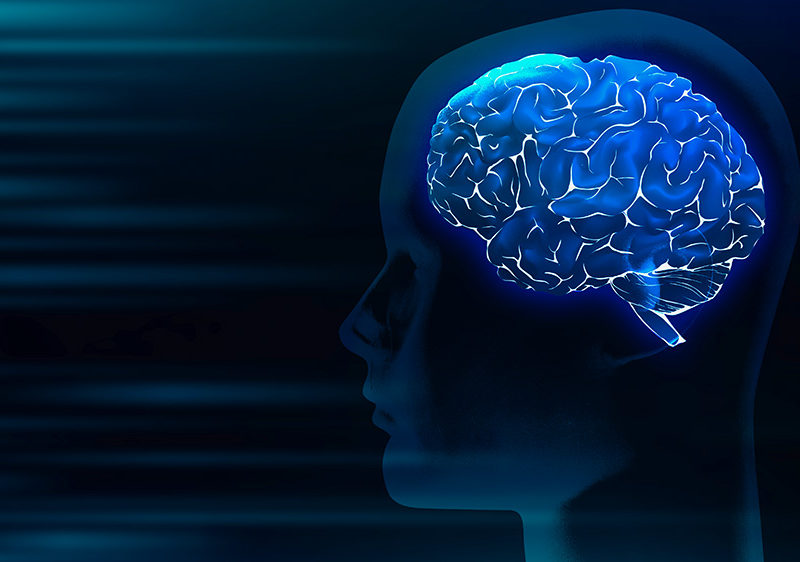
How does CBD interact with SEC?
Unlike THC, which binds directly to CB1 receptors CBD acts indirectly:
- It modulates CB1 receptor activity without causing psychotropic effects.
- It influences the availability of natural endocannabinoids, such as anandamide.
- It also acts on other receptors, notably those linked to GABA (an inhibitory neurotransmitter), which may explain its effect on reducing neuronal excitability.
It is precisely this indirect modulation that interests researchers in the link between CBD and epilepsy A brain whose neurons "run amok" could, in theory, benefit from cannabidiol regulation.
CBD and neuronal activity: scientific hypotheses
Studies on CBD and epilepsy suggest several possible courses of action:
✅ Reducing neuronal hyperexcitability By acting on GABA and CB1 receptors, CBD may limit abnormal electrical discharges.
✅ Anti-inflammatory effect Epilepsy is often associated with brain inflammation, and CBD is being studied for its potential anti-inflammatory properties.
✅ Neuroprotective effect : some research indicates that CBD may protect neurons against oxidative stress and damage associated with repeated seizures.
Why does this reinforce the value of CBD in epilepsy? ✅
This complex interaction between CBD and the endocannabinoid system does not constitute proof in itself, but it does provide a solid biological basis for clinical research.
To put it plainly: We better understand why CBD could influence the frequency and intensity of epileptic seizures..
Positive side effects on sleep have also been identified. sleepand stress and overall overall well-beingare important dimensions in the lives of people with epilepsy.
Things to remember 💡
✅ CBD does not act like a conventional drug it modulates the endocannabinoid system.
✅ This action could explain its interest in certain resistant resistant epilepsies.
✅ Many researchers continue to explore these mechanisms to better understand the role of CBD in epilepsy.
Practical advice and how to use CBD
When it comes to the link between CBD and epilepsyit is essential to distinguish between two worlds:
- the Medical CBDcontrolled by prescription (e.g. Epidyolex),
- and CBD well-beingavailable legally in stores in the form of oils, capsules, herbal teas or balms.
Wellness products are not medicines. They can, however, find their place in a daily daily routineThey can help you to relax, sleep better and manage stress better - three very important aspects for people with epilepsy and those around them.
How do you use CBD on a daily basis?
Sublingual CBD oils
This is the most widespread form and most effective for rapid action.
- A few drops are placed under the tongue, where they are absorbed by the mucous membranes.
- The effect generally appears within 30 to 60 minutes.
- Dosage can be adjusted gradually, starting with small quantities.
👉 In the Nobilis Product range :
- L'Full Spectrum 10% oil is ideal for discovering CBD and smoothly integrating it into your daily routine.
- L'Full Spectrum 20% oil is better suited to people used to CBD or looking for a more marked effect in terms of relaxation and comfort.
CBD capsules
Practical and discreet, they allow precise precise dosage.
- Slower absorption (effect after 1 to 2 hours).
- Interesting for people who want to integrate CBD into a stable, hemp-free routine.
Nobilis Product offers formats for regular consumption, perfect for those who prefer simplicity and consistency.
Note: Our CBD capsules do not contain THC.
Practical tips for getting started 💡
💡 Start low, increase slowly : always start with a low dose, observe the effects on sleep, stress and relaxation, then adjust.
💡 Be regular : the effectiveness of CBD often relies on taking it regularly, not once in a while.
💡 Choosing laboratory-analyzed products : guarantee the absence of THC above the legal threshold and perfect traceability.
💡 Combine CBD with a healthy lifestyle. : regular sleep, balanced diet, stress reduction.
Epilepsy and CBD oil: buying advice
As we said just now, it's important to choose a good quality CBD oil.
The CBD oils we offer in our catalog are :
- Made in France from hemp flowers organically grown in the north of France;
- Produced using our own processin which we take care to extract the cannabinoids and terpenes without damaging them;
- Free of products for your health ;
- Supplied with an independent laboratory analysis reportproof of CBD content and oil composition.
On the other hand, when it comes to choosing an oil to treat epilepsy, we recommend our 10% CBD oil, as this is the same dosage as Epidiolex.
-
CBD Capsules - 30 x 50mg - THC free
34,90 €Relieve stress, improve sleep and regain balance naturally with our Broad Spectrum 50mg CBD capsules. THC-free and made from organic French hemp oil, they promote overall well-being, with no bitter taste.
🇫🇷 Made in France with organic hemp oil from Brittany
🎯 Precise dosage: 50mg of CBD per capsule, with no taste or bitterness
✅ GMP & ISO certified, suitable for vegans and vegetarians
-
CBD Oil 20% Full Spectrum - Nobilis Product
Rating 5.00 out of 529,90 €Our Full Spectrum 20% CBD oil is a concentrate of nature and French know-how. Derived from hemp grown without GMOs or additives, it contains twice the concentration of cannabidiol as our 10% formula, while retaining all the cannabinoids, terpenes and flavonoids naturally present in the plant.
Thanks to theenhanced entourage effect, this oil promotes a deeper action on stress, body tension and sleep quality.
Its 10 ml format with pipette allows precise, easy dosing, even at high concentrations.
This oil is :
-
🇫🇷 Produced in our French laboratory, from hemp extraction to bottling, with full traceability
-
🌿 Réalisée à partir de crude de CBD, pour conserver toute la richesse moléculaire du chanvre : CBD, CBG, CBN, THC < 0,3 %, flavonoïdes, terpènes
-
✅ Analyzed with every batch by an independent laboratory, to guarantee consistent, uncompromising quality
-
-
CBD Oil 10% Full Spectrum - Nobilis Product
Rating 4.75 out of 524,90 €Discover our Full Spectrum 10% CBD oil from hemp grown in France, without additives or GMOs. Its richness in cannabinoids and terpenes guarantees an optimal surrounding effect for deep relaxation and natural well-being. Practical 10 ml bottle with pipette for precise dosage.
Our Full Spectrum 10% CBD oil is :
🇫🇷 Manufactured from A to Z (from hemp extraction to bottling) in our French laboratory.
🧪 Made with CBD crude to provide all the cannabinoids, flavonoids and terpenes.
✅ Analyzed by an independent laboratory for each batch to guarantee quality.
Epilepsy and CBD oil: Frequently asked questions
No. CBD CBD does not cure epilepsy. Clinical studies have shown positive effects in certain rare and resistant forms (Dravet syndrome, Lennox-Gastaut), but only with the drug Epidyolexprescribed under medical supervision. Shop-bought CBD oils, such as those from Nobilis Productare wellness products and do not replace medical treatment.
- pidyolex pure CBD-based medicine, validated by the health authorities, used to treat certain severe pediatric epilepsies.
- CBD wellness oils Natural supplements (Full Spectrum or Broad Spectrum), legal and safe, that can support relaxation, sleep and stress management.
Chez Nobilis Product, nos huiles sont testées en laboratoire et conformes à la réglementation européenne (<0,3 % de THC).
Clinical trials use very high very high dosesoften between 10 and 20 mg/kg/daymuch higher than those of commercially available wellness oils.
For a routine CBD oil (such as Full Spectrum 10% Nobilis), we recommend starting with a few drops a day, then gradually increasing according to your needs and sensitivity.
In a medical settingEpidyolex can be prescribed to children with resistant epilepsy. On the other hand CBD wellness oils oils should never be given to children without medical advice.
Yes, CBD is legal in France and Europe as long as the THC content is less than 0,3 % and the product is derived from authorized hemp varieties.
- L'Epidyolex is a prescription drug.
- CBD oils Nobilis Product are legally compliant wellness products, available without prescription.
Our sources
[1] LégiFrance
[2] What about cannabidiol (CBD) in the treatment of epilepsy? (Ligue Epilepsie)
[3] Cannabidiol: Pharmacology and potential therapeutic role in epilepsy and other neuropsychiatric disorders (PubMed)
[4] Cannabidiol Displays Antiepileptiform and Antiseizure Properties In Vitro and In Vivo (PubMed)

